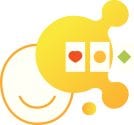
WHAT IS ABA?
Behavioral Family Solutions, LLC provides Behavior Analysis services with an emphasis on functional analyses and function-based treatments. Applied behavior analysis (ABA) utilizes objective measures and function-based, empirically-supported interventions that are designed to explain and improve socially significant behaviors. One on one therapy includes treating problem behaviors and providing skill development in order to promote socially acceptable behavior. Clients with all abilities and disabilities are welcome, including gifted children who struggle with social and communication skills and those with Autism Spectrum Disorder, Developmental Disabilities, and Intellectual Disabilities. Caregiver training is an important component to therapy to assist in understanding relationships between behavior and its surrounding environment and empowering caregivers to make meaningful behavioral changes.
For more information call toll free (844)424-4539 or email info@behavioralfamilysolutions.com
Types of Applied Behavior Analysis Therapy:
1. Discrete Trial Training
DTT teaches a skill by breaking it up into simplified, isolated tasks/ steps. By breaking down tasks into short trials and using prompts, DTT increases the overall success rate of learning. DTT uses clear beginnings and ends to each trial with specific instructions and prompts. The trials are short, permitting several teaching trials and a number of learning opportunities to occur. In addition, using one-to-one teaching allows for individualized programming.
2. Verbal Behavior
VB training uses a structured and one-on-one type of teaching format. This training works to teach language to children by creating and developing connections between a word and its meaning.
Ask Us A Question
Call Toll Free (844) 424-4539 or complete the form below and we will reply within 24 hours.
The following are a list of VB terms that are typically implemented:
Echoics occur when a speaker says something aloud and the listener repeats exactly what was said. For example, the therapist says, “Ball pit” and the child will repeat the same phrase, “Ball pit”.
Mands can be thought of as commands or demands, in which a person is commanding or demanding something. A mand typically results in the speaker obtaining the item that was spoken. For example, a child asking for a drink of water when he/she is thirsty and then receiving the drink.
Tacts can be thought of as labeling an object. When a child sees a dog and then verbally says the word “Dog”, he/she is emitting a tact.
Intraverbals are similar to a conversation: A question is first asked and then an answer is provided. For example, a therapist asks, “How are you?” and the child responds, “Good!”. Intraverbals can also involve filling in the blank. For example, the therapist says, “Twinkle twinkle little _____” and the child responds with “Star”.
3. Pivotal Response Training
PRT uses the natural environment for teaching opportunities and consequences. PRT focuses on increasing motivation by adding items like having the child make choices/selections, taking turns and providing reinforcement for attempts made.
4. Natural Environment Training
NET focuses on practicing and teaching skills within the situations that they would naturally happen. In these situations, the therapist uses naturally occurring opportunities to help children learn. The therapist might provide a coloring page but withhold the crayons until the child requests them, giving the child an empty cup and waiting for him/her to request juice, or playing a board game but withholding the dice or spinner until the child requests it are all examples of using NET.



